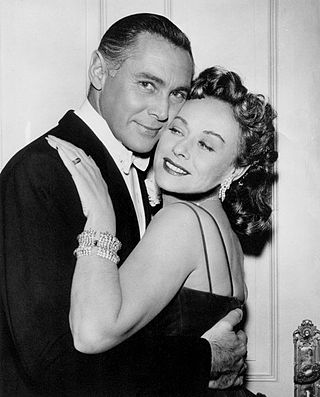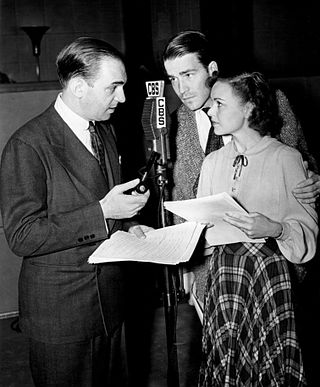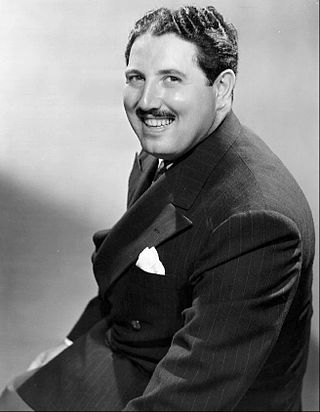Tales of Fatima is an old-time radio transcribed show that was broadcast on CBS from January 8, 1949, to October 1, 1949.
Mr. President was a radio series that ran on the ABC Network from June 26, 1947, to September 23, 1953.
The Big Story is an American radio and television crime drama which dramatized the true stories of real-life newspaper reporters. The only continuing character was the narrator, Bob Sloane.
Just Plain Bill was a 1931-1955 15-minute American radio drama program heard on CBS Radio and NBC Radio. It was "a story of people just like people we all know."

Phillip Reed was an American actor. He played Steve Wilson in a series of four films (1947–1948) based on the Big Town radio series.

Club Fifteen is a radio program in the United States that featured popular music. It was broadcast weeknights 30 June 1947 – 21 December 1951. Then, it aired Monday, Wednesday, and Friday nights until 16 January 1953. The name reflected the program's length—15 minutes. The Historical Dictionary of Old-Time Radio noted that the show "is sometimes listed as Bob Crosby's Club Fifteen because Bob Crosby was the original star, although Dick Haymes took over in 1949-50." The program was sponsored by Campbell Soups.

The Adventures of Ellery Queen was a radio detective program in the United States. Several iterations of the program appeared on different networks, with the first one broadcast on CBS on June 18, 1939, and the last on ABC on May 27, 1948.
The Saint was a radio adventure program in the United States that featured a character created by author Leslie Charteris. As the program's introduction said, The Saint, was "known to millions from books, magazines, and motion pictures." Several versions of the program appeared on different networks.

The Harold Peary Show is a radio situation comedy broadcast in the United States September 17, 1950-June 13, 1951 on CBS. Some sources refer to the program as Honest Harold or The Hal Peary Show.
For a broader look at the character on which this program was based, see Bulldog Drummond.

Wendy Warren and the News was a radio soap opera in the United States. It was broadcast on CBS weekday afternoons, June 23, 1947 – November 12, 1958. The program was notable for the title character's reporting actual "women's news" in addition to appearing in a more traditional soap opera role.
Cabin B-13 can refer to a radio play by John Dickson Carr broadcast in the United Kingdom and United States or to an old-time radio mystery anthology series by Carr, broadcast in the United States only
Confession is an American old-time radio crime drama anthology series. It was broadcast on NBC from July 5, 1953, to September 13, 1953, as a summer replacement for Dragnet.
Crime and Peter Chambers is an American old-time radio detective program. It was broadcast on NBC from April 6, 1954, until September 7, 1954.
Danger, Dr. Danfield is an American old-time radio crime drama. It was broadcast on ABC from August 18, 1946, to April 13, 1947, and was syndicated for several years thereafter.

Defense Attorney is an American old-time radio crime drama. It was broadcast on ABC from July 6, 1951, to December 30, 1952. It was also known as The Defense Rests.

I Deal in Crime was an American old-time radio detective drama. It was broadcast on ABC from January 21, 1946, until October 18, 1947, and on Mutual from October 25, 1947 until September 4, 1948. In 1947, the title was changed to Ross Dolan, Detective.

The Jack Carson Show is an American old-time radio comedy-variety program. It was broadcast on different seasons on CBS and NBC, beginning on June 2, 1943, and ending on December 20, 1956. The program was also known as The Sealtest Village Store, and the New Jack Carson Show. It was carried on the CBC Dominion network in Canada, as well. Additionally, The Jack Carson Show is the title of a television program that was broadcast on NBC from October 22, 1954, until March 11, 1955.
Johnny Fletcher is a fictional character created by Frank Gruber. Fletcher is a con-man and reluctant amateur detective. The character was the protagonist of several mystery novels published between 1940 and 1964. Additionally, he was featured in a feature film adaptation scripted by Gruber, and a short lived radio series.








